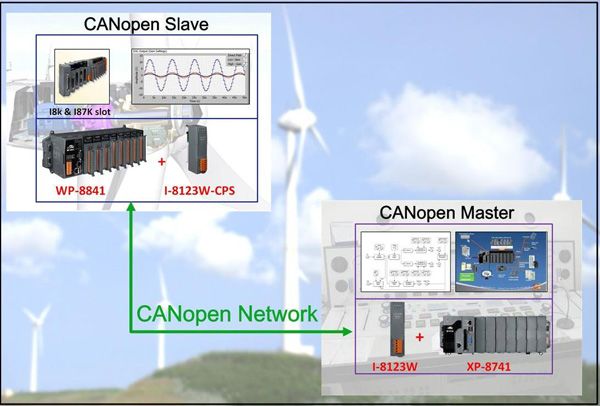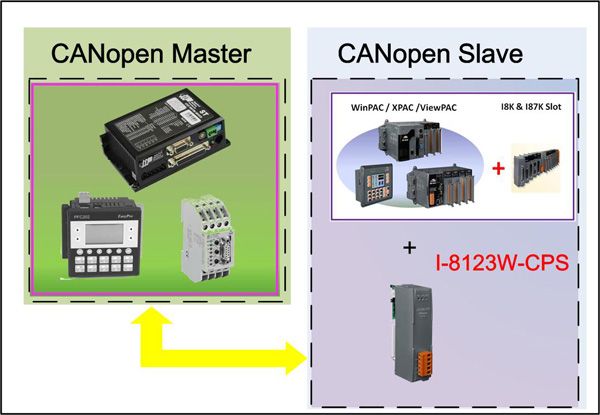1 Port high performance CANopen Slave Module
Introduction
The CAN (Controller Area Network) is a serial communication bus especially suited to interconnect smart devices to build smart systems or sub-system. It efficiently supports distributed real-time control with a very high level of security. In CAN networks, there is no addressing of subscribers or stations in the conventional sense, but instead prioritized messages are transmitted. As standalone CAN controller, I-8123W-CPS can represents an economic solution of CANopen application and be a CANopen slave device in the CAN bus on the CANopen network. It follows CiA standard specific DS-301 v4.02 and several communication service functions to communicate with master devices. It has one independent CAN communication port with 5-pin screw terminal connector, and has the ability to cover a wide range of CANopen applications. Besides,I-8123W-CPS uses the new Phillips SJA1000T and transceiver 82C250, which provide both CAN 2.0A and 2.0B specific, re-transmission function, bus arbitration and error detection with auto correction.
It can be installed in WinPAC, ViewPAC and XPAC now. It is popularly applied in the industrial automation, building automation, vehicle, maritime, embedded control network and etc. In order to expand the CANopen functions of ICP DAS products, I-8123W-CPS module is developed for this purpose.
Applications



 فارسی
فارسی
 English
English
.png)
.png)
.png)